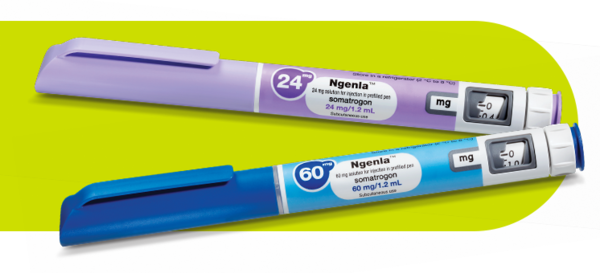
Pfizer Korea's Ngenla (active ingredient: somatrogon) will be covered by health insurance for the treatment of growth hormone deficiency in children aged three or older, starting in September.
Reimbursement eligibility extends to pediatric patients aged three or older with growth hormone secretion disorders, whose height falls at or below the 3rd percentile for their respective age group. It also requires confirmation of diagnosis through two or more growth hormone-inducing tests and the patient’s bone age should be is less than the applicable age group.
Treatment coverage begins at the age of three and continues until bone closure or until the bone age reaches 14-15 for females and 15-16 for males. However, patients exceeding a height of 153 centimeters for females and 165 centimeters for males will be responsible for the full cost of treatment.
Untreated growth hormone deficiency can lead to below-average height and delayed puberty, along with potential comorbidities such as diabetes and hypertension.
Adherence to therapy is crucial in the treatment of growth hormone deficiency as it directly impacts height growth and linear growth rates. However, daily subcutaneous growth hormone injections can be physically and psychologically burdensome for children, often resulting in non-compliance with the prescribed treatment duration.
One study revealed that 39 percent of pediatric patients receiving daily growth hormone therapy missed at least one dose per week, with 23 percent missing two or more doses.
Ngenla, the sole once-weekly growth hormone formulation available in Korea as of September 2023, has demonstrated comparable efficacy and safety to daily growth hormone formulations.
A multicenter, randomized, open-label phase 3 clinical study of Ngenla was conducted in 228 prepubertal children with growth hormone deficiency across 21 countries, including Korea, from April 2017 to August 2019.
In this study, patients were randomly assigned to receive either once-weekly Ngenla (0.66 mg/kg/week) or daily somatropin (0.034 mg/kg/day). The results at 12 months indicated an annualized height growth rate of 10.10 cm/year in the Ngenla group and 9.78 cm/year in the daily growth hormone group, with a mean annualized height growth rate difference of 0.33 cm. Additionally, both the Ngenla and control groups exhibited similar standard deviation score (SDS) changes in height at six and 12 months.
In a phase 3 crossover study evaluating treatment burden in pediatric growth hormone deficiency, Ngenla was associated with significantly lower treatment burden compared to daily growth hormone formulations. It was found to be the preferred treatment option for both patients and caregivers, leading to higher satisfaction with the treatment experience.
Notably, 95.2 percent of participants favored the once-weekly formulation for its injection schedule convenience, and 86.9 percent of patients and caregivers found it highly beneficial to have fewer injections.
"Ngenla is a prefilled pen-type growth hormone preparation that reduces the number of injections by one-seventh compared to daily growth hormone preparations. This reduction eases the treatment burden on patients and caregivers, enhancing overall convenience,” said Kim Hee-jeong, Head of Rare Disease Business Unit for Pfizer Korea.
“We anticipate that the insurance coverage of Ngenla will enhance access to treatment for pediatric growth hormone deficiency patients requiring long-term care and contribute to improving the treatment landscape for growth hormone deficiency in Korea."
Ngenla received approval from the Korean Ministry of Food and Drug Safety in January 2023 for treating growth failure in children aged three years and older due to impaired growth hormone secretion. The recommended dose is 0.66 mg/kg administered subcutaneously once weekly, and patients transitioning from daily growth hormone treatment to Ngenla may begin the once-weekly dosing regimen the day after their last daily growth hormone injection.

